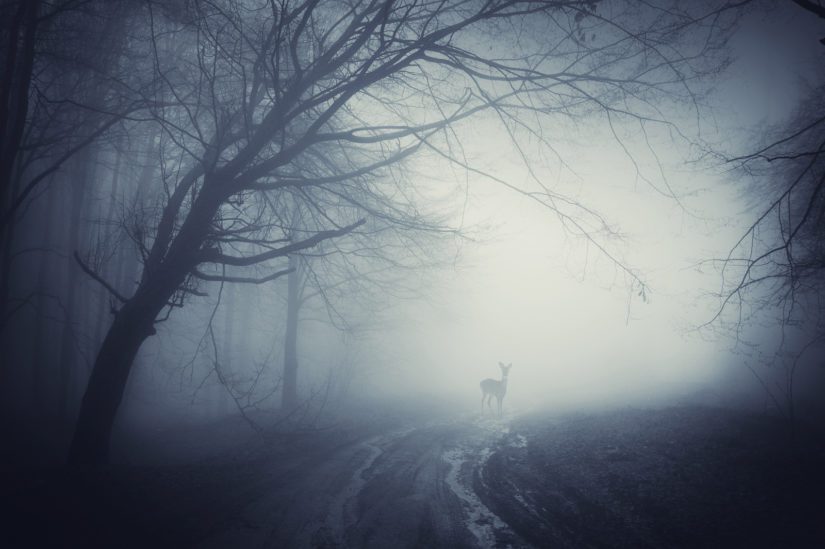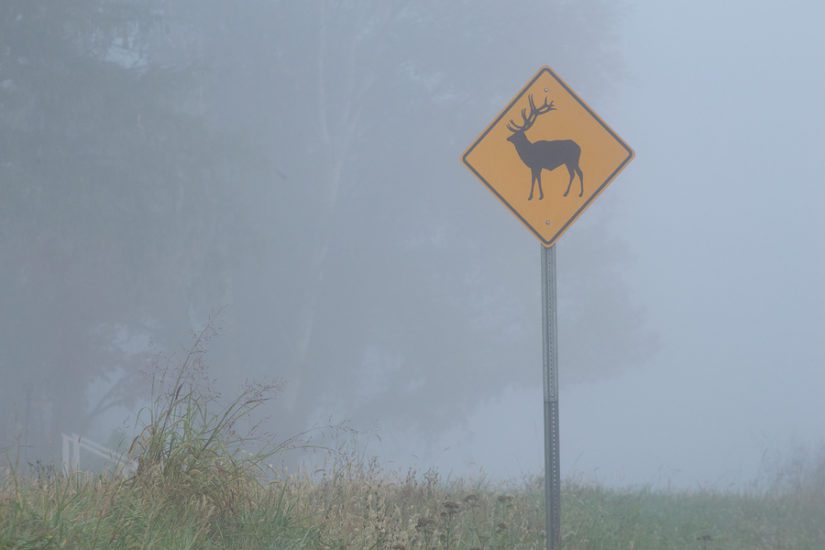Question: As the days get shorter, I will soon be driving home from work in the dark. What precautions can I take to avoid hitting wildlife on the roads?
Sadly, each year, more than 23,000 wild animals are killed in vehicle collisions across the province. Fall and winter are especially dangerous seasons. Not only does the inclement weather reduce visibility, but with fewer daylight hours, drivers tend to be on the roads at times when wildlife is more active.

Ungulates such as deer, moose, elk and bighorn sheep are particularly vulnerable. As snow accumulates at higher elevations, they move down into their winter ranges in valley bottoms – the same valley bottoms shared by our busy highways. Animals may actually use snow-cleared roads as travel corridors, but find themselves trapped by the plowed snow piled high at the road’s edge.
As prey species, ungulates tend to first freeze and then flee when confronted with danger. This means that animals frozen at the roadside are likely to bolt at any moment, typically taking a zigzag path that throws them directly in the way of an oncoming car. While swerving is a good strategy to avoid a pursuing predator, this behaviour can be catastrophic when the ‘predator’ is a vehicle.
Fortunately, there are several steps drivers can take to avoid collisions with wildlife:

- Pay attention to wildlife warning signs, as these do indicate wildlife collision hot spots;
- Stay within the recommended speed limit, and reduce your speed in areas of limited visibility;
- Be vigilant and scan the road shoulders for animals, particularly at dawn and dusk;
- Keep an eye out for shining eyes on the side of the road, highlighted by your headlights;
- Watch for flashing brake lights on the car ahead, possibly indicating wildlife on the road; and
- Do not honk or flash your lights at wildlife – rather than warning them away, this will only startle them or potentially cause them to panic and bolt into further danger.
Should you find a wild animal on the roadside who has been hit by a car, contact the BC SPCA Animal Helpline at 1-855-622-7722.
Get updates from the BC SPCA
Want to receive more news stories like this, right in your inbox? Use the form below to subscribe for updates.
